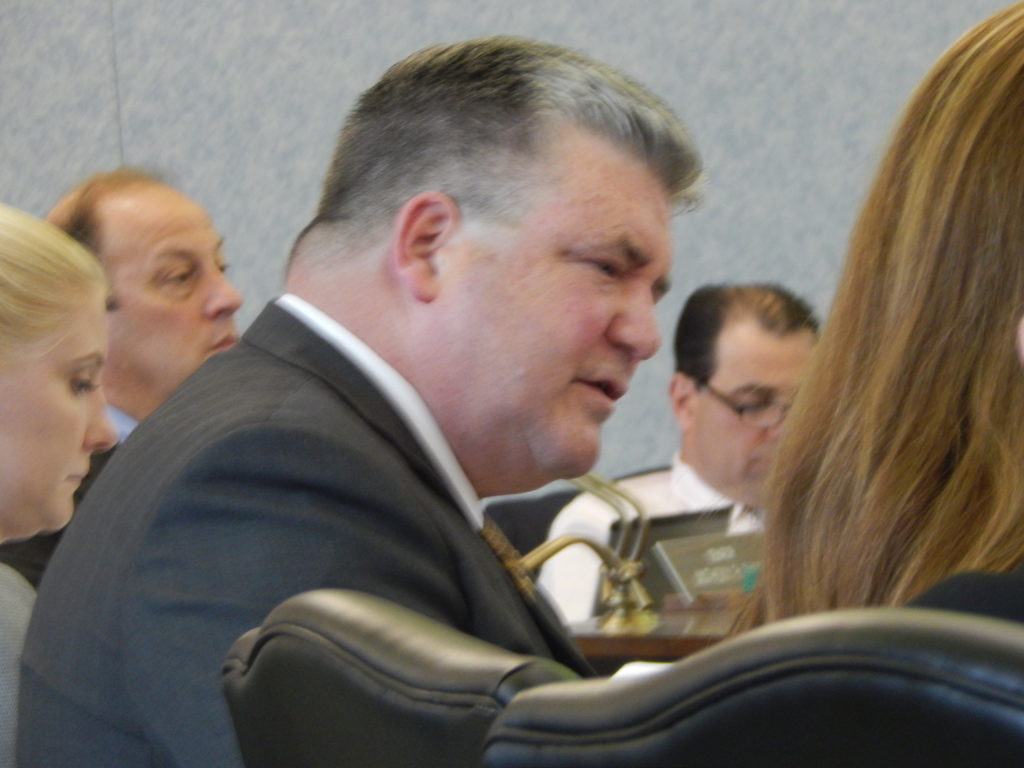NJ Budget Brief: Governor Murphy’s Emergency Bond Plan

The Republican members of the Senate Budget & Appropriations Committee — Senate Republican Budget Officer Steven Oroho (R-24), Senator Sam Thompson (R-12), Senator Declan O’Scanlon (R-13), and Senator Michael Testa (R-1) — issued the following background brief today on the Murphy Administration’s pending closing on $4 billion of emergency bonds:
- We initially were told the debt would be sold to the Federal Liquidity facility to keep interest rates low and allow for repayment at any time if State revenues came in stronger than anticipated. Now, however, the debt is being sold at market rates with inflexible terms that don’t allow early retirement.
- The Murphy Administration’s premise for selling this debt is that the State “lost” more than $4 billion in revenues as a result of COVID-19. That’s simply not true. The amount being issued is the difference between an overly optimistic 2021 revenue forecast issued in February at the height of the economic boom and a more recent and overly pessimistic 2021 revenue forecast that was issued after months of shutdown orders and before reopenings led to a quick rebound of revenue collections. That comparison is demonstrably flawed. For example, it includes an assumed drop in the sales tax against 2019 actual collections when, in fact, we are currently well ahead of even stronger 2020 collections by several percentage points. It also includes an assumed significant drop in the income tax, even though the financial markets have largely recovered to an all-time high and the higher-income individuals who generate the bulk of our income tax revenues have not been crushed by COVID-19, unlike lower income workers.
- The Murphy Administration originally claimed the borrowing was needed to address COVID needs but has since admitted that much of the debt is not necessary at all and will simply be parked in a growing “surplus” that won’t help a single nonprofit, business, or person suffering from the economic impact of COVID-19.
- Despite the Governor promising to pay down the debt quickly, the Offering Statement provided to investors indicates that the first payment on the debt will not be made until 2023.
- The Governor ignored reasonable alternatives to bonding, including:
- Aggressively pursuing an end to New York’s unjust taxation of New Jersey residents who are working remotely from their homes in the Garden State and no longer commuting across the Hudson. Many of those workers would pay lower rates to New Jersey, while potentially generating billions in new State income tax revenues;
- Achieving significant payroll savings by furloughing idle State employees who couldn’t work in March, April and May when the federal government would have paid 100% of their unemployment benefits equal to, or greater than, their regular wages;
- Simply refraining from dramatic increases in State spending and not engaging in political pork spending for things like golf courses that are not critical needs. These items were quickly approved in a non-transparent budget process that provided little opportunity for legislators or the public to question unwise spending priorities;
- More quickly and creatively opening the economy in a safe manner by utilizing $2.4 billion of federal CARES Act relief funds for their intended purpose of supporting struggling employers, including nonprofits and business. According to a recent report by the State Auditor, much of New Jersey’s federal block grant remains unspent, with plans by the Administration to dedicate hundreds of millions to support the salaries of current State employees; and
- Seeking a true pay freeze for State employees instead of giving out 4% or greater pay increases.
- The Official Statement issued by the Governor fails to include a schedule of debt service payments or an indication of how much will be wasted on interest.
- In addition to this $4 billion of debt, the Governor is issuing another $1.5 billion of Transportation Trust Fund (TTF) debt next month to support a $600 million increase in TTF spending. That debt is irresponsibly structured to have a first principal payment in 2035 and a final payment in 2050. The structure will result in higher interest rates and taxpayer money being wasted on payments to banks and investors.
The Governor’s financial incompetence makes some of the alternatives above “water over the dam” — in the short term. Still, the proposed surplus remains far larger than it needs to be — and much higher than is being acknowledged as a result of overly pessimistic revenue projections. In short, Governor Murphy is issuing far more debt than is necessary or justified.







